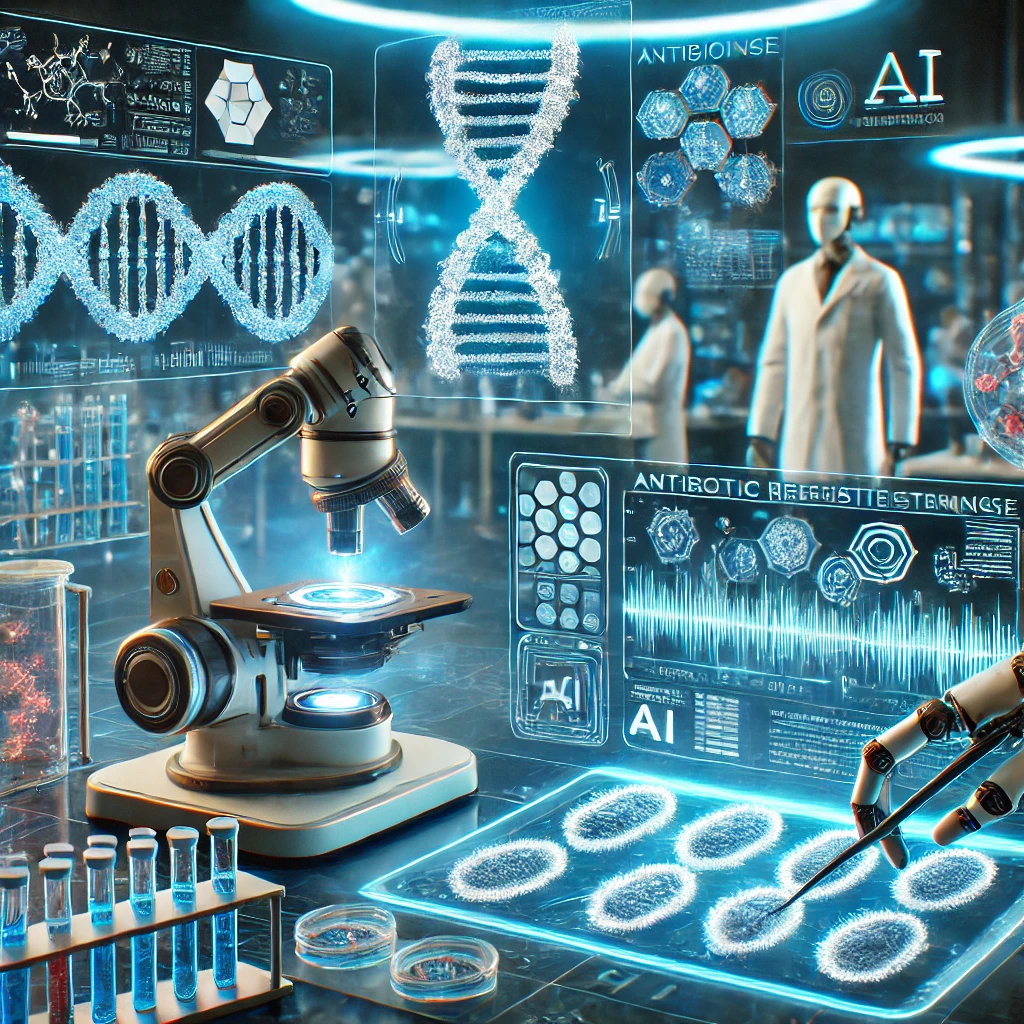The Pharmaceutical Industry in 2025: How Artificial Intelligence Is Reshaping the Future
The pharmaceutical industry in 2025 is undergoing a profound transformation, driven by artificial intelligence (AI) and emerging technologies. This article outlines the most influential trends shaping the future of pharma and healthcare, based on recent insights from reputable web sources and ongoing discussions on X (formerly Twitter).
1. AI-Powered Drug Discovery and Development
AI is redefining the drug discovery process by drastically reducing development time and costs. Advanced machine learning (ML) and generative AI models—such as AlphaFold2 and ESMFold—are enabling researchers to predict protein structures, design molecules, and identify new drug candidates with remarkable speed and precision.
By 2025, AI is expected to contribute to 30% of new drug discoveries, potentially reducing R&D timelines by up to 50% and generating between $350–410 billion annually in added value. Industry leaders like Pfizer and AstraZeneca, along with innovative startups such as BenevolentAI and Recursion, are at the forefront of using AI to repurpose drugs and develop novel therapeutics.
Example: Pfizer’s collaborations with Tempus and CytoReason accelerated the development of COVID-19 treatments like Paxlovid.
2. Clinical Trial Optimization
AI is revolutionizing clinical trials by streamlining patient recruitment, enhancing trial design, and enabling real-time data monitoring. Tools such as Unlearn’s “digital twin” technology simulate patient disease progression, helping reduce trial size without compromising accuracy.
AI-driven clinical trial solutions are projected to cut trial costs by up to 70% and shorten timelines by up to 80%. By 2025, the global market for AI-powered clinical trial tools is expected to reach $1.73 billion, with a compound annual growth rate (CAGR) of 21.6%.
Example: Vivanti’s MedDossier simplifies clinical study report (CSR) generation and regulatory documentation.
3. Precision Medicine and Personalized Therapies
AI is enabling a new era of hyper-personalized medicine by leveraging genomics, proteomics, and clinical data to tailor treatments to individual patients. From gene therapy to predictive treatment algorithms, AI is central to improving outcomes for chronic diseases like cancer and kidney disease.
Example: AstraZeneca utilizes AI to develop targeted therapies for chronic kidney disease and pulmonary fibrosis.
4. Supply Chain and Smart Manufacturing
AI is enhancing pharmaceutical supply chains through predictive analytics, real-time inventory tracking, and intelligent demand forecasting. In 2025, over 85% of biopharma leaders are investing in AI to strengthen supply chain resilience and reduce operational disruptions.
AI-driven predictive maintenance is also reducing downtime by analyzing sensor data from manufacturing equipment, and leaders like Amgen and Roche are adopting smart manufacturing strategies to boost efficiency.
Example: Pfizer has implemented intelligent automation in its temperature-controlled logistics operations, improving consistency and minimizing errors.
5. Pharmacovigilance and Regulatory Compliance
AI—combined with Natural Language Processing (NLP) and machine learning—is improving pharmacovigilance (PV) by automating adverse event detection, validating data quality, and ensuring compliance with complex regulations such as HIPAA and GDPR.
In 2025, the U.S. Food and Drug Administration (FDA) released draft guidance on using AI in regulatory decision-making, advocating for a risk-based approach to ensure drug safety and efficacy.
Example: The eWizard platform uses AI to speed up Medical, Legal, and Regulatory (MLR) content reviews and ensure compliance with marketing guidelines.
6. AI in Pharma Marketing and Commercial Operations
Generative AI is revolutionizing pharmaceutical marketing strategies by enabling real-time content generation, HCP (Healthcare Provider) engagement, and market trend analysis. AI-powered chatbots and virtual assistants are helping sales teams provide faster, data-driven responses.
In 2025, 60% of pharma executives are prioritizing field medical excellence roles, focusing on improving the personalization and relevance of stakeholder engagement.
Example: Takeda uses AI to suggest “next best actions” for medical representatives during HCP interactions, increasing engagement efficiency.
7. Ethical and Regulatory Challenges
Despite its promise, AI adoption faces significant ethical and regulatory hurdles. Data quality, privacy concerns, and algorithmic bias can pose risks, especially if AI outputs are not validated by humans. Organizations are increasingly adopting the FAIR (Findable, Accessible, Interoperable, Reusable) and ALCOA (Attributable, Legible, Contemporaneous, Original, Accurate) principles to guide data integrity.
Intellectual property is another challenge. For instance, the UK Supreme Court ruled in 2023 that AI cannot be listed as an inventor on patent applications, sparking global debate on AI ownership rights.
Example: Developing robust data governance frameworks and IP protection policies is essential to safely and effectively integrate AI into pharma.
8. Emerging AI Technologies: Agentic and Quantum-Enhanced AI
2025 is witnessing the rise of “agentic AI”—systems capable of executing complex tasks autonomously, such as hypothesis generation and protocol design. These differ from traditional generative models by exhibiting decision-making capacity. Meanwhile, quantum-enhanced AI is pushing the boundaries of drug discovery by solving problems involving “undruggable” proteins and rare disease targets.
Example: Xaira Therapeutics’ X-Atlas/Orion dataset, comprising over 8.4 million single-cell perturbations, is fueling the next frontier of AI-enabled biological research.
9. AI for Sustainability and Health Equity
AI is promoting sustainability by reducing waste and optimizing resource use (water, energy, raw materials) across pharma operations. It is also instrumental in advancing health equity, helping expand access to essential medicines through pricing models, remote patient monitoring, and mobile health technologies.
Example: AI-powered remote patient monitoring systems using mobile apps and wearable devices are expanding access to care in underserved regions.
10. Workforce and Cultural Adaptation
Integrating AI requires more than technology—it demands a shift in organizational culture and workforce capabilities. Companies are investing in upskilling teams, encouraging collaboration between data scientists, medical affairs, and commercial units. Emotional intelligence and human judgment remain crucial to balance the technical strengths of AI.
Sentiment on X (Twitter)
Industry voices on X reflect strong optimism about AI’s transformative potential in pharma, especially regarding innovations like quantum-enhanced AI and large biological datasets. Yet, there’s growing awareness of the need for robust regulatory frameworks, ethical guidelines, and data governance to ensure trust and transparency.
Personal Perspective
From my perspective as a digital marketing and healthcare transformation consultant, artificial intelligence is no longer an emerging tool—it is a foundational pillar in reshaping the pharmaceutical landscape. What we’re witnessing is not just a digital shift but the birth of a new paradigm in medicine, where science, technology, and human compassion intersect.
This article reflects my personal insights and continuous engagement with global pharmaceutical innovations. I strongly believe that the MENA region must act decisively to adopt and adapt AI-driven models to remain competitive, ethical, and sustainable in the years to come.
Written by: Abdallah Battah
Pharmacist | Digital Marketing & AI Consultant | Healthcare Transformation Strategist





